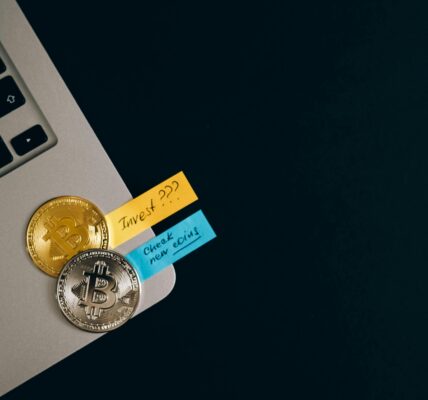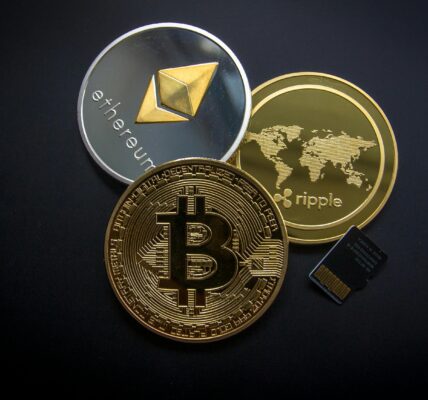Blockchain in Banking and Finance: Revolutionizing the Future of Financial Services
Introduction to Blockchain Technology
Blockchain is one of the most revolutionary innovations of the 21st century, transforming multiple industries, particularly banking and finance. But what exactly is blockchain, and how can it fundamentally change the nature of financial services?
What Is Blockchain?
Blockchain is a decentralized and distributed ledger technology that records transactions across a network of computers. Each transaction, or “block,” is linked in an immutable chain, making it exceedingly difficult to alter the data without the consensus of the network participants. This structure provides a transparent means of data recording and ensures high levels of security.
Key features of blockchain include:
- Decentralization: Reduces reliance on central authorities.
- Transparency: Provides all network participants with access to the same data.
- Immutability: Prevents unauthorized tampering with transaction data.
- Security: Maintains data integrity through cryptographic algorithms.
Why Blockchain Matters to Banking and Finance
Financial institutions handle vast volumes of data, often leading to inefficiencies and high security costs. Blockchain technology presents several compelling advantages that are particularly appealing to the banking and finance sector.
More Security and Transparency
Blockchain can securely record financial transactions, creating an environment less vulnerable to tampering. Since each transaction is validated by the network, unauthorized data manipulation becomes exceedingly difficult. This transparency fosters trust and helps to reduce fraud levels.
Reduces Costs and Processing Times
Traditional cross-border payments can take days to process and are often accompanied by high fees. In contrast, blockchain transactions can occur in real-time, significantly reducing costs and saving millions for banks and customers alike.
Enhanced Customer Experience
By streamlining operations, blockchain can make banking quicker and more efficient for customers. This includes faster loan disbursements, quick remittance transfers, and more straightforward identity verification.
Applications of Blockchain in Banking and Finance
Blockchain holds immense potential within the financial industry, finding extensive applications in various domains:
Cross-Border Payments and Remittances
Cross-border payments are among the most notable applications of blockchain. This method offers a far more cost-effective and speedy approach than traditional systems, enabling near-instantaneous cross-country funds transfers without the need for intermediary banks.
Smart Contracts for Automated Agreements
Smart contracts automatically execute agreements when specific conditions are met. These contracts can expedite processes in loan disbursements and insurance claims, minimizing the involvement of intermediaries and enhancing operational speed.
Fraud Detection and Prevention
The immutable nature of blockchain creates a transparent path for financial transactions, allowing institutions to monitor for fraudulent activities more effectively. A verifiable record of transactions can be used to spot and prevent fraud.
KYC and AML Compliance
While Know Your Customer (KYC) and Anti-Money Laundering (AML) processes are crucial for compliance, they can often be lengthy and expensive. Blockchain enables banks to share KYC data securely and collaboratively, reducing duplication and making compliance more efficient.
Trade Finance
Blockchain technology can digitize the traditionally paper-heavy trade finance process, making it less time-consuming and error-prone. It enables banks to handle letters of credit, trade invoices, and bills of lading more securely and efficiently.
List of Major Blockchain Platforms for Banking
Several blockchain platforms cater specifically to the needs of the financial industry, each designed for various banking applications.
Ripple
Ripple is a blockchain technology that facilitates real-time, cross-border payments. Its native digital asset, XRP, allows immediate value transfers between banks and financial institutions, alleviating the usual transaction costs and time delays.
Ethereum
Ethereum is renowned globally for its robust support for smart contracts and decentralized applications (dApps). Financial institutions can leverage its technology to create flexible, in-house financial solutions, including decentralized finance (DeFi) products and automated loan contracts.
Corda by R3
Corda, developed by the R3 consortium, is tailored explicitly for regulated industries like finance. It enables secure private transactions while adhering to industry regulations, making it a popular choice among banks and financial institutions.
Real-World Applications of Blockchain in Finance
Many major financial institutions are currently utilizing blockchain technology to improve their services and enhance operational efficiency.
JPMorgan’s JPM Coin
JPMorgan Chase has developed JPM Coin, a digital currency designed for rapid transactions between institutional clients. Utilizing its own blockchain network, JPM Coin supports near-instantaneous transactions with a high level of security.
Santander Blockchain-Driven Payments Solutions
Santander Bank has introduced One Pay FX, a blockchain-based service enabling same-day international payments for clients. Leveraging Ripple’s technology, this service facilitates faster, clearer, and more secure transactions.
HSBC Blockchain for Trade Finance
HSBC has implemented blockchain technology in its trade finance operations, significantly enhancing efficiency. The bank achieved its first live trade finance transaction using blockchain in collaboration with Accenture in 2018, resulting in reduced processing times and enhanced security for documentation.
Challenges in the Adoption of Blockchain in Finance
While blockchain brings numerous benefits, its integration into finance also faces certain challenges.
Regulatory and Compliance Issues
As blockchain operates as a decentralized system, establishing a central authority for regulatory oversight presents challenges. Financial regulators are still developing appropriate frameworks to manage data privacy, consumer rights, and anti-money laundering within a blockchain context.
Scalability and Interoperability
Blockchain networks often face scalability issues, particularly when processing a high volume of transactions. Additionally, differing blockchain platforms struggle with interoperability, which complicates integration and communication across varied systems.
Security Issues
Though blockchain technology is generally secure, vulnerabilities can arise within applications built on top of it, such as smart contracts. Hackers may exploit code flaws, creating loopholes that lead to security breaches. Therefore, robust testing of all blockchain applications in finance is essential.
Future of Blockchain in Banking and Finance
As blockchain continues to mature, its potential for driving innovation in the financial sector will expand significantly.
Emerging Trends and Innovations
The rise of decentralized finance (DeFi), tokenized assets, and digital identities represents a shift in traditional finance. Blockchain provides the secure infrastructure necessary for these innovations, enabling the development of new financial products and services.
Potential Impact on Financial Services
Blockchain can streamline operations, reduce costs, and enhance transaction speeds while promoting transparency in the financial sector. Integrating blockchain into financial institutions will allow them to provide reliable, efficient services, redefining banking as we know it.
Conclusion
Blockchain technology enhances security, efficiency, and transparency within banking and finance, fundamentally transforming these sectors. Applications ranging from cross-border payments to KYC compliance illustrate its revolutionary potential to streamline operations and lower costs. While regulatory and scalability obstacles still exist, the undeniable promise of blockchain technology will continue to shape the future of financial services, making banking faster, more accessible, and safer.









